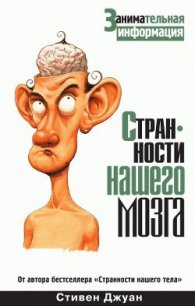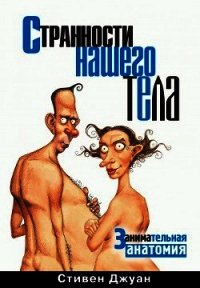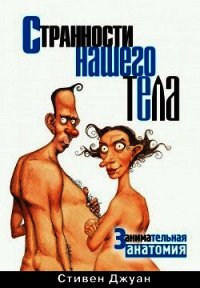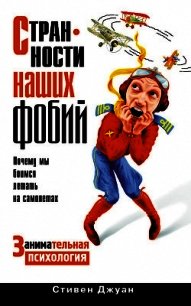Могут ли поцелуи продлить жизнь? - Джуан Стивен (читать книги бесплатно .TXT) 📗
526
S. Juan, ‘Three orders of the mind’, Epoch Times,20 December 2006, p. 9.
527
R. Campbell, Campbell’s Psychiatric Dictionary,Oxford University Press, New York, 2004, pp. 538–539, 541.
528
S. Juan, ‘Keeping your psychos straight’, National Post,15 May 2006, pp. 1–2.
529
Dr John Gartner is a clinical psychologist at Johns Hopkins University School of Medicine.
530
J. Gartner, ‘Dark Minds’, Psychology Today,September-October 2009, pp. 37–38.
531
Dr Patrick Leman is from the Royal Holloway College of the University of London.
532
British Psychological Society, Who shot the president?London, 18 March 2003.
533
P. Leman, ‘The born conspiracy’, New Scientist,14 July 2007, pp. 35–37.
534
Dr Robert Burns was formerly the Director of the Institute for Human Development at the University of Seattle, Washington.
535
M. Taylor, “Why we doodle’, In Health,March-April 1991, pp. 30–33.
536
M. Taylor, “Why we doodle’, In Health,March-April 1991, pp. 30–33.
537
M. Taylor, “Why we doodle’, In Health,March-April 1991, pp. 30–33.
538
British Broadcasting Commission, ‘”Blair” doodles amuse Number 10’, BBC News(London), 30 January 2005.
539
‘Sifting through the mystery of JFK’s doodles’, Associated Press(New York), 23 November 2004.
540
N. Nelson, The Doodle Dictionary,Doubleday, New York, 1992.
541
S. Juan, “Why do we doodle?’, The Register,13 October 2006.
542
E. Dykeman, ‘Doodling as a memory boost’, Elder Care Express Newsletter(East Lansing, Michigan), 5 March 2009.
543
Dr Jackie Andrade is from the School of Psychology at the University of Plymouth in the UK.
544
J. Andrade, “What does doodling do?’, Applied Cognitive Psychology,2009, vol. 23, no. 2, Epub 27 February 2009.
545
I. Sample, ‘Doodling should be encouraged in boring meetings, claims psychologist’, The Guardian(London), 27 February 2009, p. 15.
546
Dr Peter Quintieri is from the School of Medicine at Duke University in Durham, North Carolina, and Dr Kenneth Weiss is from the University of Medicine and Dentistry of New Jersey.
547
P. Quintieri and K. Weiss, ‘Admissibility of false-confession testimony: Know thy standard’, Journal of the American Academy of Psychiatry and the Law,2005, vol. 33, no. 4, pp. 535–538.
548
Drs S.M. Kassin, C. Meissner and R. Norwick are from the Department of Psychology at Williams College in Williamstown, Massachusetts.
549
S. Kassin et al., “I’d know a false confession if I saw one”: A comparative study of college students and police investigators’, Law and Human Behaviour,2005, vol. 29, no. 2, pp. 211–227.
550
S. Juan, ‘What is a Confessing Sam?’, The Register,1 September 2006.
551
J. Leckenby, Claims About the Power of SubliminalAdvertising, Center for Interactive Advertising, University of Texas, Austin, 6 March 2006.
552
Drs Susan Crawley, C. French and S. Yesson are from the Department of Psychology at Goldsmith College of the University of London.
553
S. Crawley et al., ‘Evidence for transliminality from a subliminal card-guessing task’, Perception, 2002, vol. 31, pp. 887—92.
554
S. Juan, ‘Hidden messages and ESP’, National Post,27 March 2006, p. 1.
555
P. Marks, ‘The lie-detector you’ll never know is there’, New Scientist, 7 January 2006, p. 22.
556
S. Juan, ‘Do lie detector tests really work?’, The Register,16 June 2006.
557
S. Juan, ‘It would be a lie to say that it’s a lie-detector’, National Post,6 November 2006, p. 1.
558
M. Huelsman et al., ‘Relation of religiosity with academic dishonesty in a sample of college students’, Psychological Reports, 2006, vol. 99, no. 3, pp. 739—42.
559
Drs M.K Johnson, S. Hashtroudi and D.S. Lindsay are from the Department of Psychology at Princeton University, New Jersey.
560
M. Johnson et al., ‘Source monitoring’, Psychological Bulletin,1993, vol. 114, no. 1, pp. 3—28
561
Drs S. A. Perkins and E. Turiel are from the Department of Psychology at the University of California at Berkeley.
562
S. Perkins and E. Turiel, ‘To lie or not to lie: To whom and under what circumstances’, Child Development, 2007, vol. 78, no. 2, pp. 609—21.
563
S. Juan, ‘How honest are humans’, National Post,17 April 2007, pp. 1–2.
564
R. Comer and J– Laird, ‘Choosing to suffer as a consequence of expecting to suff er: Why do people do it?’, Journal of Personality and Social Psychology,1975, vol. 32, no. 1, pp. 92—101.
565
Drs Rebecca Curtis, Paul Smith and Robert Moore are from the Department of Psychology at Adelphi University in New York.
566
R. Curtis et al. ‘Suff ering to improve outcomes determined by both chance and skill’, Journal of Social and Clinical Psychology, 1984, vol. 2, no. 2, pp. 165–173.
567
Drs Roy Baumeister, Jean Twenge and Christopher Nuss are from the Department of Psychology at Case Western Reserve University in Cleveland.
568
R. Baumeister et al., ‘Effects of social exclusion on cognitive processes: Anticipated aloneness reduces intelligent thought’, Journal of Personality and Social Psychology,2002, vol. 83, no. 4, pp. 817–827.




